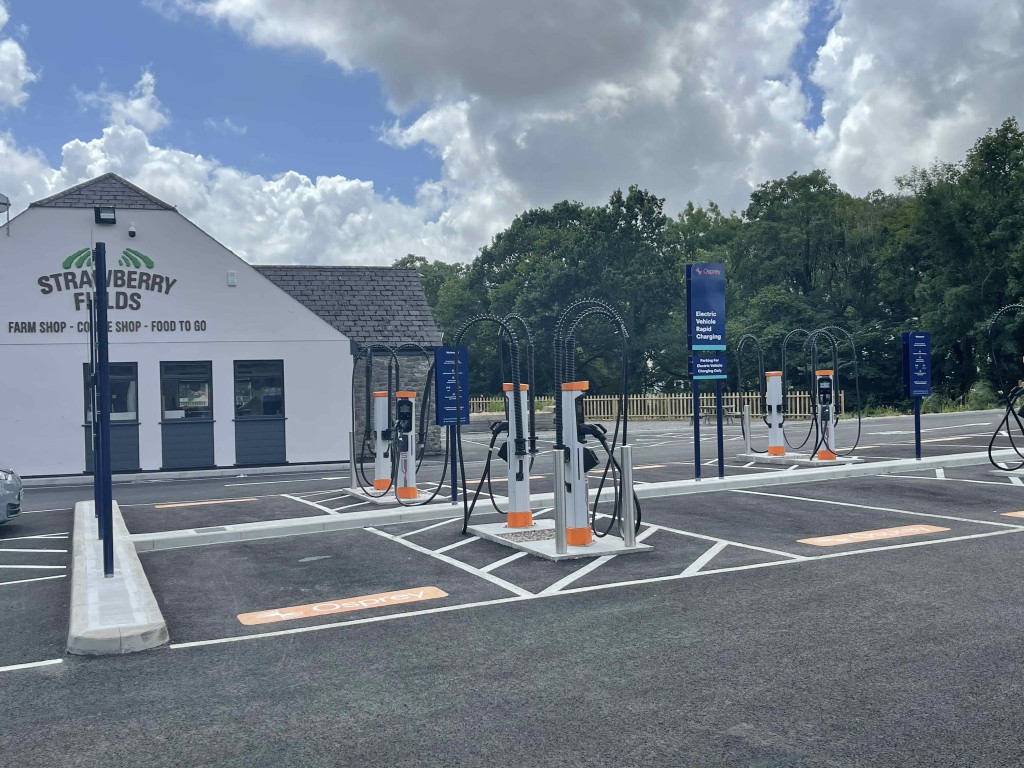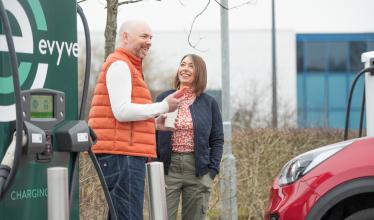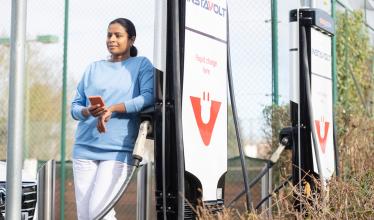
Osprey network costs
Membership cost: None
Cost per charge: 82p per kWh
No connection fee
Access via Zap-Pay, contactless bank card or Osprey app
To discover how much it will cost to charge an EV from an Osprey charge point, head to Zapmap’s Public Charging Calculator. This allows you to select any new or used plug-in vehicle, and tailor elements – such as electricity cost and charge required – for personalised results.
Zap-Pay

You can use Zap-Pay to pay for your charging sessions at any Osprey charge points.
Zap-Pay is the simple way to pay for charging within the Zapmap app. Select the charger you'd like to use within the app and start your charging session at the press of a button.
You can check on the status of your charge at any time to see the estimated cost and the charge time remaining.
VAT receipts for all charging sessions are stored within the app, and can be accessed at any time to download to your device.
How to use Osprey charge points
No membership is required to charge with Osprey. You can use Zap-Pay or any contactless debit or credit bank card. Simply choose your payment method (contactless, app or RFID), select your connector (CCS or CHAdeMO) and plug your car in.
Video guides are available to watch for individual chargers on the Osprey website.
Where are Osprey charge points located?
Select 'Filters' -> 'Networks' -> 'Osprey' to view only Osprey charge points.
Contact Details
Customer services:
24hr helpline: 03300 101 757
For urgent enquiries: 0800 058 8400
Email: support@ospreycharging.co.uk
Further contact information can be found on the Osprey website.

Osprey's Salmons Leap ultra-rapid hub on the Devon expressway
How does Osprey compare to other networks in terms of pricing?
Zapmap monitors the prices of charging on the public network and reports on the prices charged by the top 10* rapid charging networks. The prices are updated on a monthly basis here: Rapid Charging: Top 10 Network Pricing
The price to charge an electric vehicle (EV) on the public charging network can vary substantively, and prices are increasing due to current issues in the energy market.
Updated on a monthly basis, the Zapmap Price Index shows the difference in prices paid depending on the type of charger and will also track how this is changing over time.
Special features of the Osprey charging network
Accessibility for disabled drivers is a key feature of Osprey's ultra-rapid charging hubs.
Space
Extra space alongside the parking bays as well as unobstructed access from the car to the charge point, allows customers to manoeuvre mobility aids and the cables themselves more easily.
Kerbs
Placing the charge points on a kerb can restrict access, especially from a seated position in a wheelchair. Wherever possible, Osprey place the charge points flush to the tarmac of the carpark.
Cables
Ultra-rapid charging cables are heavy and can be unwieldy. Osprey chooses charger hardware that manages the cable weight (e.g. spring-loaded) for use with one hand. The cables are also longer and positioned for all car types.
Screens
The screen should be visible and usable from a seated position, with high-contrast text and visual elements, and its usability not affected by glare or darkness.
About Osprey
Osprey started life as Engenie Electric Vehicle Rapid Charging, founded in London in 2016. Their founding principle was to pioneer super-fast public charging with zero hassle for the customer and landlord, thus accelerating the transition to electric vehicles. The switch to Osprey happened in 2020.
The Osprey public EV charging network has a simple focus – pay-as-you-go rapid charging. As Zapmap’s launch partner, Osprey’s charge points were the first to be Zap-Pay enabled, allowing Zapmap users to pay for charging at more than 200 rapid chargers through the app.



